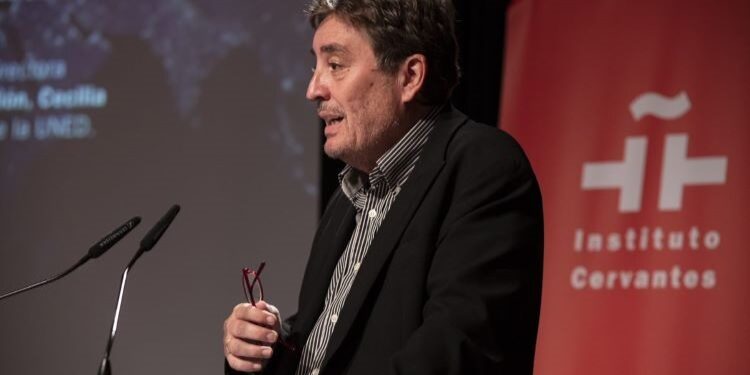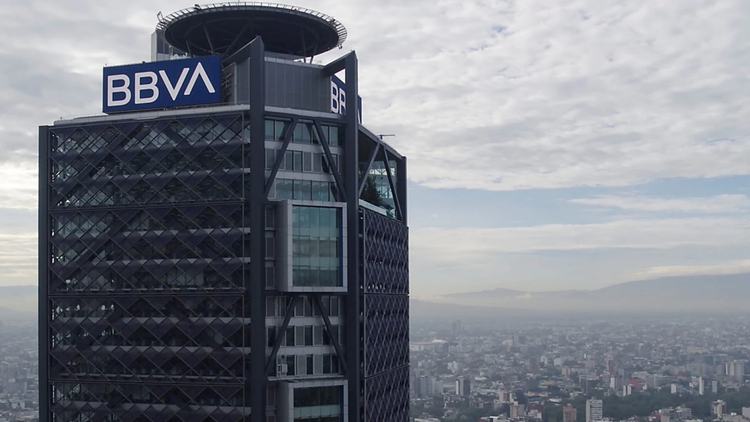The Diplomat
Last Tuesday, the Instituto Cervantes presented GEOLEXI, a new tool for virtual consultation of synonyms in Spanish that compares the meaning given to certain words in different Spanish-speaking countries.
The platform has been created by Cervantes and the National University of Distance Education (UNED) and was presented at the Institute’s headquarters in Madrid. The consultation tool, which is now available for free consultation on computers and all types of mobile devices, provides agile and accessible information on more than a thousand lexical units (words or expressions), which will soon be many more, and allows users to know and compare the different meanings of words or expressions. For example, GEOLEXI collects expressions used in some Spanish-speaking countries and unknown in others, such as “abismarse” (“sorprenderse”, “to be surprised in English”), “mufa” or “foso” (equivalent to “gafe” or “cenizo”, “jinxed” in English, better known) or “pensar en la inmortalidad del cangrejo” (to be delusional or “in babia”).
During the ceremony, Luis García Montero, director of Cervantes, said that the Institute “is committed to Hispanism, to understanding Spanish as a language with a pluricentric norm” that belongs to the more than 500 million speakers, spread over twenty countries, “who use it, imprinting on it the diversity of their environments, from a unity that allows us to understand each other without difficulty”. The tool, he explained, is especially useful for those who work in the teaching and certification of Spanish as a foreign language (the two fundamental tasks of the Instituto Cervantes), such as teachers, evaluators and authors of teaching materials, to help them understand the linguistic varieties. But it is also for everyone interested in the language and curious about how it is used in different countries.
Ricardo Mairal Usón, rector of the UNED, said that this innovative lexical tool, of great utility and pedagogical value, also has “an extraordinary potential because it anticipates possible future developments related to artificial intelligence”. GEOLEXI, continued the professor, demonstrates the importance of inter-institutional cooperation and research.
Through this tool, the user can search for a word or expression by three different criteria: lexical (meaning), geographical (countries or areas that use them) or alphabetical. Each of them provides its definition and is accompanied by photographs or videos that contextualize the word, as well as information on its semantic networks. The words and expressions are divided into three categories: “panhispanismos” (used throughout or almost throughout the Hispanic world), “americanismos” (only in Latin America, but not in Spain) and “españolismos” (used exclusively in Spain; these account for less than five percent of the total).
The authors have excluded, “out of prudence,” words that may be offensive to individuals, communities or countries for various reasons (e.g., criminal language has been discarded). Nor have they incorporated words that are taboo in some countries (such as “coger” in Argentina), although Cuban María Antonieta Andión believes that they will have to be included in the future.
There are many terms that change from one area to another. The “enchufe” in Spain (“socket” in English) is the “tomacorriente” in others. The “mascarilla” (“mask”) that we have barely taken off our faces after COVID-19 is called a “barbijo” (“chinstrap”) across the Atlantic. The “nariz” (“nose”) has the geosynonym “ñata”, and the “paño de cocina” (“dishcloth”) is “franela” (“flannel”). The lexicon introduced by GEOLEXI is based on the Nociones específicas del Plan Curricular del Instituto Cervantes (Notions specific to the Instituto Cervantes Curricular Plan), published in 2006, and its compilation has been possible thanks to the collaboration with the Faculty of Philology and the Department of Languages and Computer Systems of the UNED.






